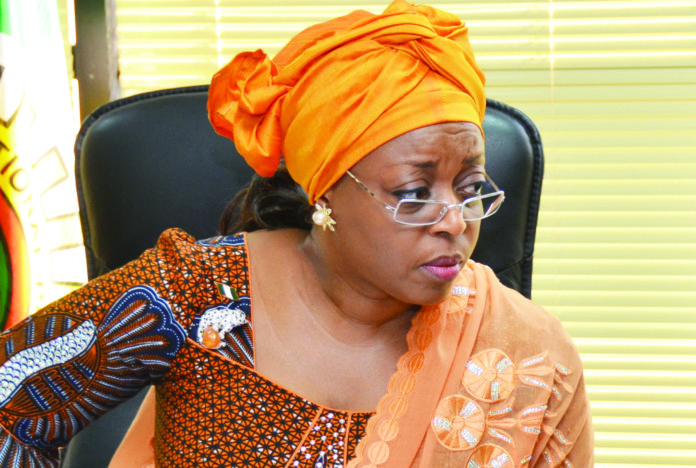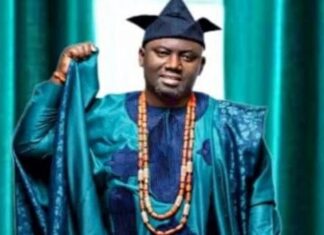The clamour for the extradition of Mrs. Diezani Alison-Madueke for her to answer to allegations of corruption is touching on the diplomatic relations of Nigeria with the United Kingdom. Senior Correspondent ONYEWUCHI OJINNAKA writes that, for some reasons, the extradition call may not be hearkened to.
The discovery of N7. 6 billion linked to the former Minister of Petroleum, Diezani Alison-Madueke, by the Economic and Financial Crimes Commission (EFCC) and 56 high-class houses allegedly bought by her between 2011 and 2013 for $21.98 million evoked the ire of civil groups and protesters led by good governance advocate, social crusader and music impresario, Charles Oputa, popularly known as Charly Boy. They marched in protest to the EFCC office Abuja and demanded the extradition of Mrs. Madueke to come and answer charges bordering on looting of Nigeria’s treasury while she was serving as petroleum minister in the government of Goodluck Jonathan.
At press time, the former minister of petroleum has reportedly moved to a small flat in London, having been asked to forfeit UK properties worth over £11 million and forced to forfeit the N7.6 billion allegedly hidden in a Nigerian bank.
Ruling that nailed her
Justice Abdulaziz Anka of the Federal High Court, Lagos, had on Monday, August 28, 2017 ordered permanent forfeiture to Federal Government the sum of N7.6 billion and temporary forfeiture of another set of properties (56 houses) in highbrow areas across the country allegedly linked to Mrs. Alison-Madueke. The forfeitures were sequel to an application filed and argued by the EFCC before the court.
The protest
During the protest, the group urged well-meaning Nigerians to join them in demanding for the extradition of Mrs. Alison-Madueke to face prosecution for her alleged looting of Nigeria’s treasury and other crimes.
The group said: “Following recent mind-boggling allegations of corruption and wanton looting of public funds and the collective patrimony of Nigerian citizens by the former Minister for Petroleum, Mrs. Diezani Alison-Madueke, we call on the Economic and Financial Crimes Commission to apply for her extradition from the United Kingdom to face prosecution in Nigeria.”
It noted that it is surprising that the Federal Government is not pushing for her extradition to face prosecution for her alleged crimes.
Aside Mrs. Alison-Madueke, Charly Boy asked the Federal Government to deal decisively with other corrupt people looting the nation’s wealth, adding that no looter should be shielded.
Co-convener, Deji Adeyanju, said the EFCC should account for the money so far recovered and disclose the names of the looters as it intensifies its fight against corruption.
Addressing the protesters on behalf of EFCC, Peter Aremu assured the group that the Commission is not relenting in its efforts in fighting corruption and shall follow all due protocols to ensure all perpetrators are brought to book, adding that the commission is working closely with UK law enforcement agencies over allegations of corruption and money laundering against the former minister.
Why extradition may be difficult
Sour diplomatic relations: But the call for her extradition may be a tall order. Among the reasons is the seemingly not-too-cordial relationship of Nigeria with her colonial master, Britain. Currently, their diplomatic ties is suspect. Nigeria has no substantive high commissioner in London. The last was Dalhatu Tafida who bowed out 2015 after serving for seven years. What the most populous Black nation has in the United Kingdom is Acting High Commissioner in the person of Adah Ogah who assumed duty on December 21, 2015.
Reacting to the call for the extradition of Mrs. Alison-Madueke, the executive director of Civil Society Legislative Advocacy Centre (CISLAC), Auwal Rafsanjani, posited that it may be difficult to extradite her because Nigeria, for now, has no substantive High Commissioner in the UK and no ambassador in America since the present administration came into power for over two years.
According to Rafsanjani, “the presence of a High Commissioner would have facilitated the extradition, but since there is no strong diplomatic ties between Nigeria and the United Kingdom, it would be difficult. Besides, people like Diezani have multiple citizenship. If she is chased in United Kingdom, she may run to America or other countries.
“It may be difficult because there is no diplomatic mission in these countries. Government should be serious and establish or re-open bilateral and diplomatic relations with other countries.”
He tasked government to be serious and establish diplomatic relations in other countries, just as it did in the United Arab Emirate (UAE). Speaking on the recovered loots, the CISLAC executive director stressed that an integrated trust fund to be managed by responsible people with impeccable character and integrity should be set up.
Said he: “The recovered loot in the trust fund should be injected and disbursed for the development of the social sector such as roads, schools, hospitals, purchase of drugs, water and other social services which will benefit Nigerians, rather than putting the funds in the budget, like the Abacha loot which at the end of the day would be carted away by the legislators in one fraudulent way or another.”
He noted that civil society organisations (CSOs) at home and abroad are working hard to see that those loots are recovered through campaigns, advocacies and legal actions, adding that the Federal Government should collaborate with civil society in efforts to recover money stashed away by unpatriotic Nigerians. “The looters should not only come back to answer charges, but must be made to return the loot.”
Diezani’s sins in UK: Also reacting to extradition demand, the executive director of Civil Society Network Against Corruption (CISNAC), Lanre Suraj, posited that it is very possible but not at this point in time, for obvious reasons. He expressed that the former minister is connected with offences in UK bordering on money laundering and, for that, they may not agree to extradite her.
“For UK would have to conduct investigations, prosecute her and possibly convict her according to UK legal system. UK has to conduct, investigate and act according to law.
“It is only after going through their legal system that she can be repatriated to Nigeria.”
He posited that even if UK convicts her, through plea bargaining, she may be given a soft landing here in Nigeria like what happened to ex-governors and ministers who refunded their loot and were never harassed, and today still hold public offices.
Diezani denies allegations
Having kept mute for so long over several allegations of financial impropriety against her by EFCC, the former minister broke her silence by emphatically denying ever stealing any money while serving the country as petroleum minister.
She claimed in a statement that the anti-graft agency was taking advantage of her silence to try and convict her in the media.
In her reaction to the forfeiture order, she said: “I wish to state that I cannot forfeit what was never mine.
“I do not know the basis on which the EFCC has chosen to say that I am the owner of these funds, as no evidence was provided to me before the order was obtained, and they have not, in fact, served me with the order or any evidence since they obtained it.
“Let me re-state categorically, as I have always maintained, for the record, I have not and will never steal money from or defraud the Federal Government of Nigeria. I am willing to respond to charges brought against me that follow duly laid down procedures,” she stressed.
While challenging the EFCC to publish details of the Nigeria National Petroleum Corporation (NNPC)’s accounts from where $153.3 million was reportedly taken, she refuted the report that Italian prosecutors indicted her for sharing in the loot of the $1.3 billion OPL 245 oil block deal involving Malabu, the Joint Venture multinational partners, ENI (AGIP) and Royal Dutch.
Her words: “Let me once again, state for the record, that this is another figment of the author’s imagination, which, given the persistent bid to ensure my destruction and stick all of the sins that plagued oil and gas sector in the last 30 years upon my head, probably emanated from the EFCC itself.
“Let me clear the history of OPL 245, otherwise known as Malabu. In 2010, shortly after I was appointed as Minister of Petroleum Resources, the issue of OPL 245 was brought to my attention. I looked into the case and immediately became aware of the inherent and long standing sensitivities around this issue.
“It became clear from the onset that this case was not within the direct purview of the Minister of Petroleum Resources, but, in the main, was centred on issues of law.
“By this time, there was already an International Centre for Settlement of Investment Dispute (ICSID) investigation and claims against the FGN running into billions of dollars.
“Therefore, we took directives from the Chief Legal Officer of the nation, the Attorney General and Minister of Justice. In all of these matters, due process was followed to the letter at all times.
“I wish to categorically state that I have never held any discussion on this matter, with any individuals or entities outside of official channels.”
She denied participating in any activity relating to financial payments on the Malabu matter, other than those statutorily mandated to the Minister of Petroleum Resources by the Petroleum Act.
“My role in this matter was purely statutory, one as required by law in the Petroleum Act 3.
“I have chosen not to insult, accuse or demonise any person or persons. In spite of all the allegations that have been made against me, no one has been factually proven.
“I remain very proud of the fact that all the policies, tenets and plans that I initiated in the oil and gas sector are still underpinning the entire structure. This is because they were put in place for the good of the entire nation and its people in mind. They were not factional or tribal, neither were they based on religious bias.”
Last line
Many, especially critics of the Muhammadu Buhari administration, argue that the trial of Mrs. Alison-Madueke smacks of witch-hunt. They explain that even in the present administration, there are thieves who have been shielded because of their political affiliation. Mrs. Alison-Madueke is known to be a staunch supporter of the immediate past Goodluck Jonathan administration.
Another angle of the extradition matter is from those who feel that the former minister is among the elite class who always go scot-free, no matter the offence they commit in this part of the world. Those in this school of thought say only the sons and daughters of nobodies go to jail for corruption, while their opposites could go in even for onionskin trespasses.













